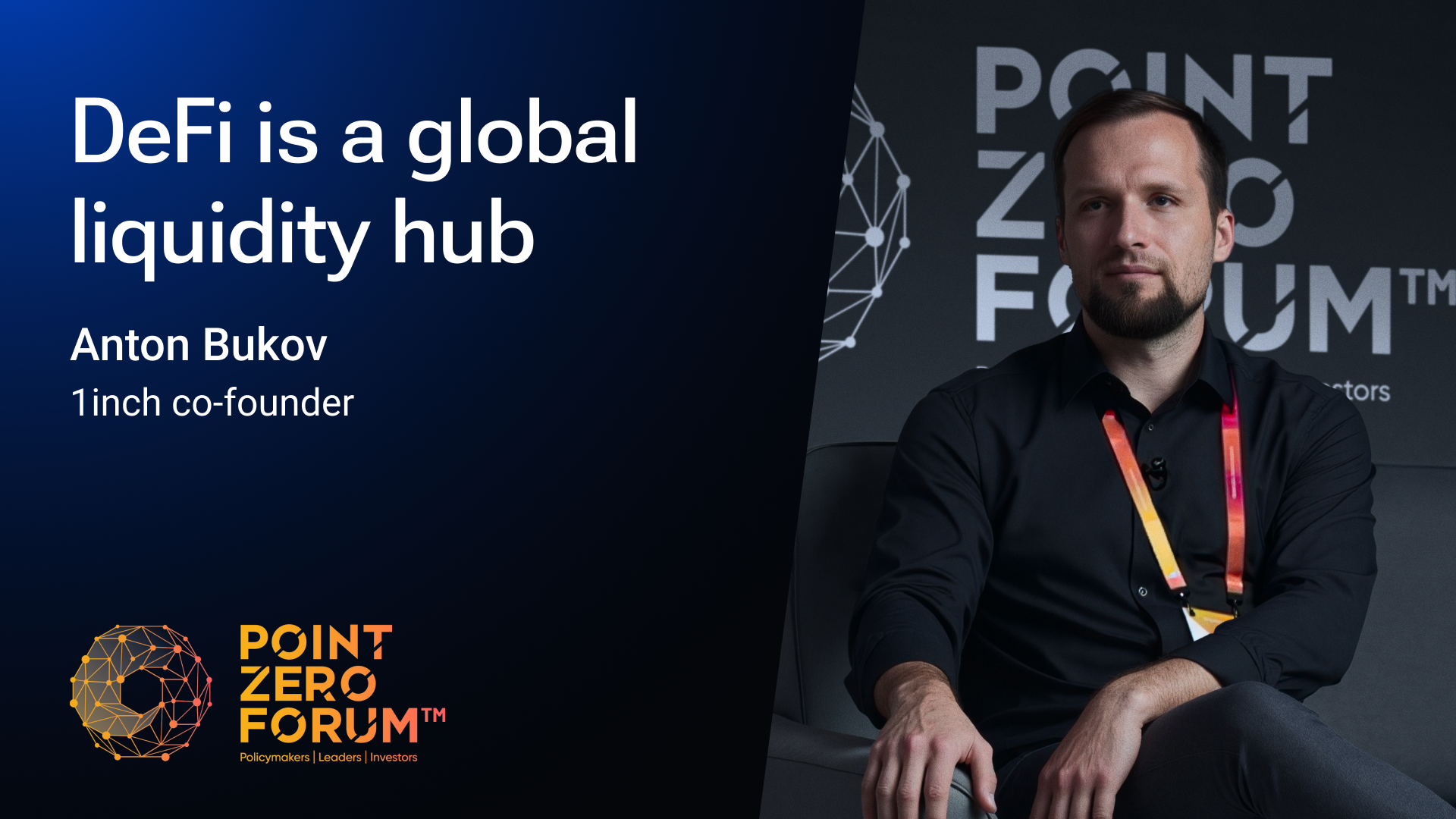Anton Bukov: “DeFi is a global liquidity hub”

Speaking at the Point Zero Forum in Zurich, Switzerland, on May 6, 1inch co-founder Anton Bukov shared his insights on the role of DeFi as a global liquidity hub.
In his comments on the panel The Future of Decentralized Finance (DeFi) in the Financial System, Anton Bukov highlighted the many opportunities DeFi creates for self-custodial solutions and products.
Plentiful opportunities
According to Anton, DeFi came as a major step forward from Bitcoin, which had been used to store and transfer value.
“With DeFi — with platforms like Ethereum and other smart contract platforms — we gained the ability to do many different things, all while maintaining self-custodial access to our funds,” Anton explained. “We can, for instance, exchange assets or borrow funds.”
“Now, it’s just a matter of programming,” he continued. “Someone can build something at a hackathon, and millions of users can access it without any restrictions. And you don’t need to verify who those users are — whether they’re real people, cats, AI agents, or anything else.”
“That’s what makes this system far more efficient than traditional finance,” he added. “To onboard, all you need is an internet connection — and you can start moving any amount of assets. It’s also a much fairer system, because transaction costs are tied to computational effort, not to the value of the funds being transferred, spent, or exchanged.”
Crypto as a global liquidity hub
Anton suggested that today, crypto is much more than just technology — it’s “a global liquidity hub seeking opportunities, estimating risks, rewards and everything in between.”
“Whenever I see projects built at the intersection of traditional finance and crypto, they tend to turn opportunities into yield — which can be amplified by liquidity in crypto,” he observed. “And that’s a pure economic incentive and a huge opportunity: building projects that connect traditional finance and crypto.”
Risks of overregulation
Meanwhile, according to Anton, overregulation could put the very existence of this liquidity hub at risk.
“Overregulation could lead to the artificial fragmentation of liquidity,” he said. “If any country tries to overregulate it, that would result in the creation of separate subsets of protocols or wallets — for the same users or new ones. And that wouldn’t help the country connect to the global liquidity hub. It would subvert DeFi.”
A promising future
Still, Anton stressed that he’s not worried about the future of DeFi, as it represents “economic freedom and financial freedom.”
He noted that many economies are eager to tap into global DeFi liquidity, though some remain constrained by existing regulations.
“Some countries will succeed in this, some will fall a bit behind — but eventually, they’ll observe how different approaches play out,” he concluded. “And those focused on economic efficiency will be the ones able to take advantage of global DeFi liquidity.”
Stay tuned for more insights into the DeFi space from 1inch!




























